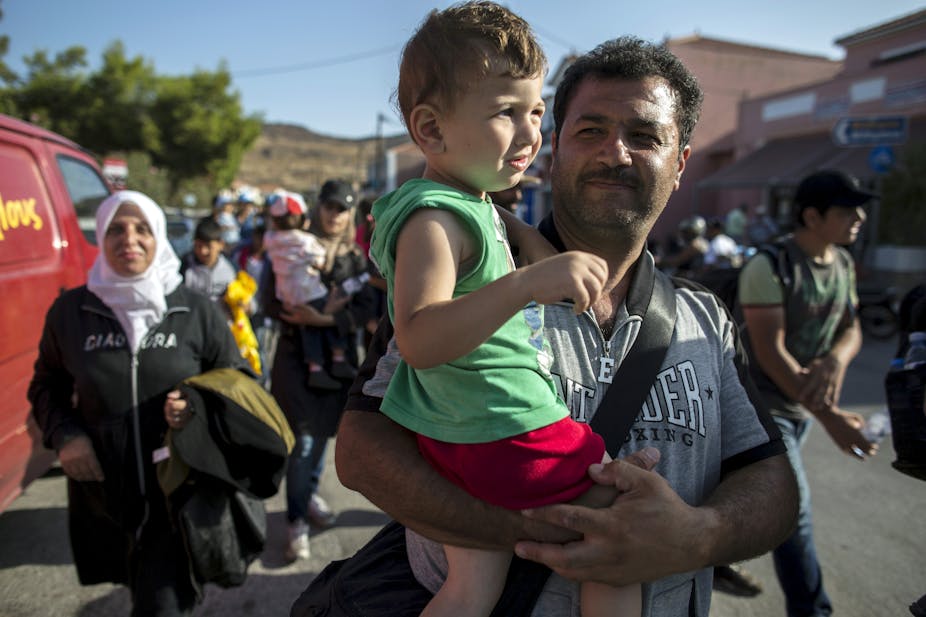When Islamic terrorists struck Paris on November 13, Europe was in the midst of a debate over how to handle the large numbers of refugees coming from Syria, Iraq and the Horn of Africa.
These two events have given rise to a series of contradictions concerning the opening or closing of EU borders and polarised positions regarding Islam and refugees. Indeed, a wave of hostility towards accepting refugees has spread based on rumours that doing so would make it easier for Syrian terrorists to enter the EU, when in fact most migrants are fleeing Islamic State (IS) and the regime of Bashar al-Assad.
It is for this reason that the majority of the countries neighbouring Syria, including Turkey, Lebanon and Jordan, have welcomed four million refugees, and that France, Germany and other European countries have decided to give those who qualify fast-track access to refugee programs.
No easy route
So have some terrorists “taken advantage” of the opportunity to legally enter French territory? Even if a Syrian passport was found at the scene of one of the massacres, there is little chance that accepting refugees would open the door to terrorists as well, for several reasons.
The first is that most of the terrorists were French citizens, and therefore lawful residents – IS didn’t want to risk attracting the attention of the authorities by sending illegal immigrants into the EU to commit heinous crimes. That was the case for November 13 as well as the January attack against Charlie Hebdo and the Merah affair in 2012. However, some of the perpetrators did steal Syrian documents to conceal how they entered EU territory.
The second is that the recognition of refugee status, including the fast-track route, known as prima facie, reserved for Syrians, occurs only after one or more interviews with the French Office for the Protection of Refugees and Stateless Persons (OFPRA).
These are conducted by officers who specialise in the regions. Where there’s doubt, individuals aren’t given refugee status – France remains strict on this point.
Different profiles
Jean-Claude Juncker, president of the European Commission, stated that the terrorist attacks did not call into question the principle of accepting refugees, and that he was counting on the shared engagement of EU members. What appears to be a firm ethical stance on his part has not been challenged by the countries striving to “share the burden” of the 160,000 asylum applicants that Europe has said it would accept. Germany, France, Italy and the Scandinavian countries haven’t called for closing the door to refugees because it might also allow for terrorists to enter.
One thing is self-evident: Syrian asylum seekers are very different from the followers of IS. On one side you have members of the middle class who paid smugglers to get them to the borders of the EU, either by sea (the Greek Islands) or by land (the Greek-Turkish border and the Balkan route). Many are ready to enter the European labour market, even at the cost of accepting low-skilled work.
They come in family groups, in the hope of finding a safe haven from war and the opportunity to work. In Syria they were were well-established socially and professionally, and wouldn’t have left if it hadn’t seemed impossible for them to stay. Many are older, and settled in life with children.
Many hope to return to Syria once the conflict is over, but nobody knows how long the regime of Bashar al-Assad will last – no one had imagined he would still remain in power after the Arab revolutions.

On the other hand there are the young people of North African origin who live far from the city centres and who feel there is no room for them in French society, be it because of low education, discrimination, unemployment or trouble with the law. Some were drawn in by radical Islamist propaganda on the Internet that offered them the chance to become “heroes” through a “holy war”, up to and including giving up their own lives.
Many went to Syria to join Islamic State, and most had little prior knowledge or practice of Islam. They radicalised as a fashion, by imitation, by rejection of a world that, in their eyes, had no place for them and that had rejected or marginalised them.
It is therefore more necessary than ever to keep our senses and not give in to the siren call of those who take advantage of the confusion between refugees and terrorists.
Translated from the French by Leighton Walter Kille.


